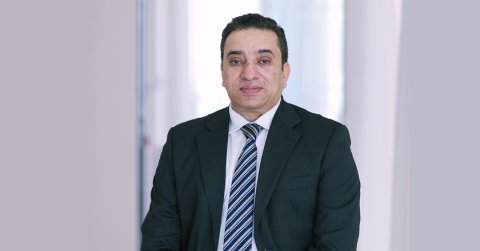
Empowering the next generation of cybersecurity leaders – Help AG’s MSS Graduate Program
The cybersecurity landscape is evolving rapidly, and the demand for skilled professionals has never been greater. Help AG’s MSS Graduate Program, spearheaded by Sunil Sharma, Vice President – Managed Security Services, aims to bridge the talent gap by equipping young graduates with hands-on experience, industry certifications, and mentorship. With a structured, year-long approach, Sharma states that the program transforms aspiring professionals into industry-ready cybersecurity experts. By fostering strong academic partnerships and immersive learning experiences, Help AG is not just addressing current talent shortages but also shaping the future of cybersecurity in the region.
Interview Excerpts:
What do you aim to achieve through Help AG’s MSS Graduate Program?
With 24 years of cybersecurity experience across seven countries, I’ve been with Help AG since 2020, leading one of the region’s largest Managed Security Services (MSS) teams, comprising over 200 professionals. Over the years, I have witnessed a growing talent gap in cybersecurity, both globally and regionally. To address this, we launched the MSS Graduate Program—a structured, year-long initiative designed to identify, train, and mentor young graduates. By aligning their skills with industry needs, we prepare them for full-time roles within our team. The program has received strong industry support and plays a vital role in building a sustainable pipeline of skilled cybersecurity professionals.
How does Help AG’s MSS Graduate Program facilitate the development of practical cybersecurity skills that can be applied in professional settings?
The program is structured into distinct phases to provide a comprehensive cybersecurity learning experience. The Back-to-School phase reinforces fundamental cybersecurity concepts, ensuring a strong foundation beyond academic studies. Graduates receive specialized training through Udemy, a strategic partner of Help AG, and hands-on simulations via Immersive Labs. Experienced Help AG mentors provide guidance and regular evaluations to track progress.
“In the On-the-Job Training phase, graduates are assigned to streams based on their interests and performance, such as engineering, SOC, and automation.”
Over six months, they gain hands-on experience, analyze threat alerts, and progressively tackle complex tasks. By the end of this phase, they are well-prepared to contribute effectively to projects and the cybersecurity industry.
How does the MSS Graduate Program remain aligned with the evolving cybersecurity landscape?
To ensure the MSS Graduate Program remains relevant in the rapidly evolving cybersecurity landscape, we integrate the MITRE ATT&CK framework, a globally recognized resource that continuously updates threat models based on real-world adversarial behaviours. This provides graduates with up-to-date exposure to emerging cybersecurity threats and mitigation strategies. Furthermore, we collaborate with leading vendors to deliver specialized training on the latest tools, technologies, and security solutions. The industry- driven initiatives equip participants with the skills necessary to address current cybersecurity challenges while fostering adaptability for future threats.
What challenges do graduates face, and how does the program support them?
Graduates often struggle with transitioning from academic learning to industry applications and adapting to the fast-paced cybersecurity environment. To address this, the program offers daily check-ins, weekly evaluations, and mentorship from team leaders. Hands-on learning through simulations and shadowing further bridges the gap between theory and practice.
“The program’s flexibility ensures tailored support, fostering confidence and competence in cybersecurity.”
What is the significance of hands-on experience, and how does the program facilitate it?
Practical experience is critical in cybersecurity. Help AG collaborates with leading vendors like Immersive Labs to provide trainees with simulated real-world challenges. In addition to internal training, the program supports career placements, allowing graduates to explore opportunities within Help AG and its clients, thereby strengthening the regional cybersecurity talent pool.
How do partnerships with academic institutions bridge the gap between academia and industry?
Help AG actively collaborates with universities such as the University of Wollongong in Dubai and the University of Sharjah to align academic learning with industry needs. Through career fairs, internships, guest lectures, and curriculum contributions, students gain both theoretical knowledge and practical skills. The initiatives ensure a steady pipeline of industry-ready talent equipped to tackle real-world cybersecurity challenges.
Have any program graduates successfully transitioned into client-facing roles?
The first cohort of the MSS Graduate Program achieved a 100% employment success rate within Help AG. Notably, one graduate led the launch of a new service and became the primary client liaison, earning a monthly performance award among a 550-member team. Such success stories highlight the program’s effectiveness in developing industry-ready professionals.
How does Help AG address gaps in traditional cybersecurity education?
Traditional academia often lags the evolving cybersecurity landscape. Help AG bridges this gap through mentorship, curriculum collaboration, and practical engagements across diverse regions, including India, Oman, UAE, and KSA.
“As part of the e& group, Help AG fosters young talent through its MSS Graduate Program, hackathons, innovation forums, and open days, ensuring graduates gain industry-relevant expertise.”
What advice would you give to future cybersecurity leaders?
To stand out in a competitive job market, aspiring cybersecurity professionals should pursue micro-credentials and industry-recognized certifications alongside their degrees. Certifications like Cisco CCNA, accessible online, demonstrate specialized skills and a proactive learning mindset. Differentiation comes from continuous upskilling, developing niche expertise, and positioning oneself as a high-value professional in the field.





